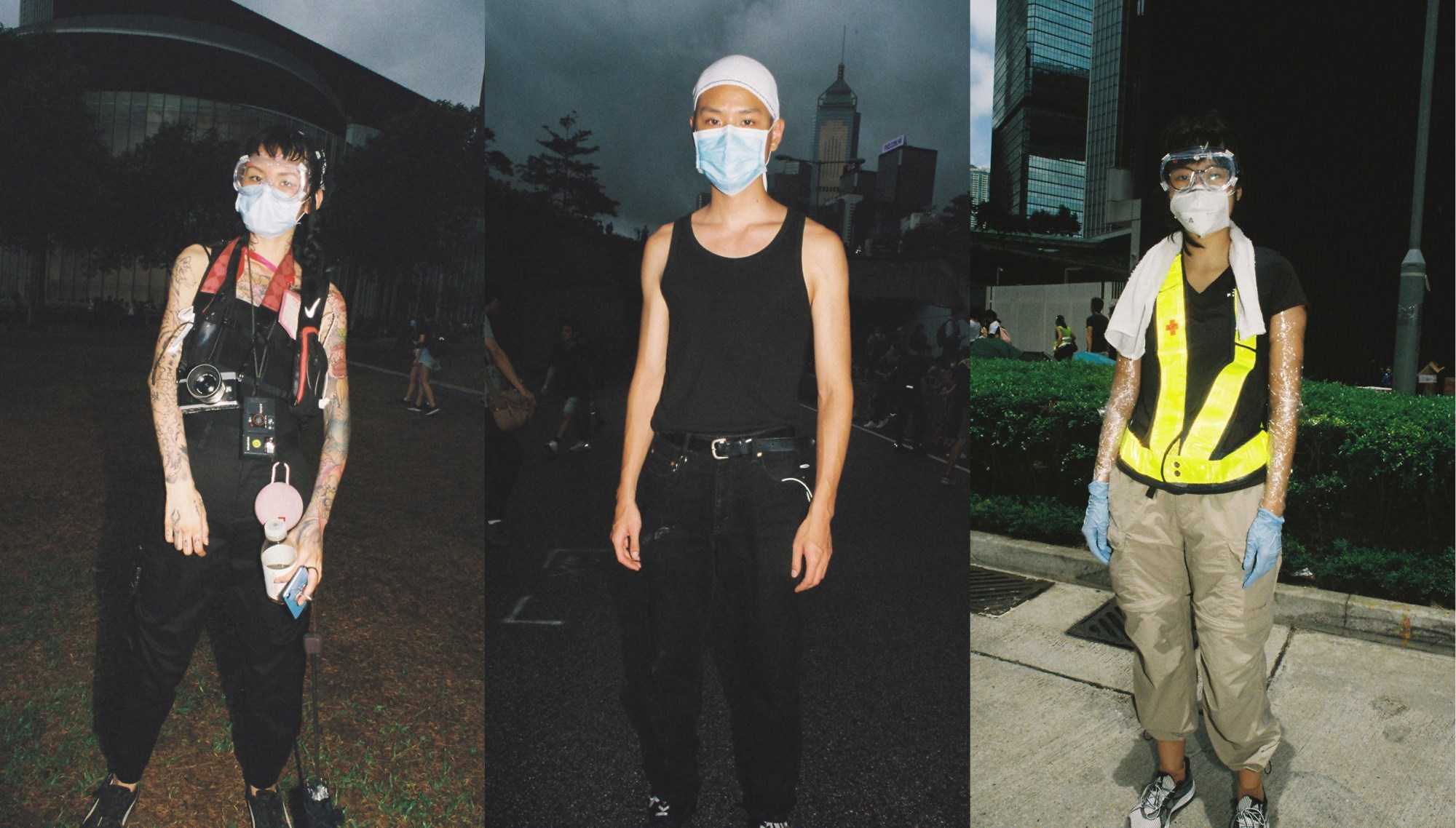The protests in Hong Kong have been dominating the city since beginning back in June and remain ongoing. During this time, Hong Kong photographer Eric has been documenting the city’s young protestors, particularly focusing on creating a record of what protestors wear. The series isn’t about style, but instead focuses on the idea of clothing as protection and a way to keep safe. Below, in his own words, Eric talks to us about the protestors and their message:
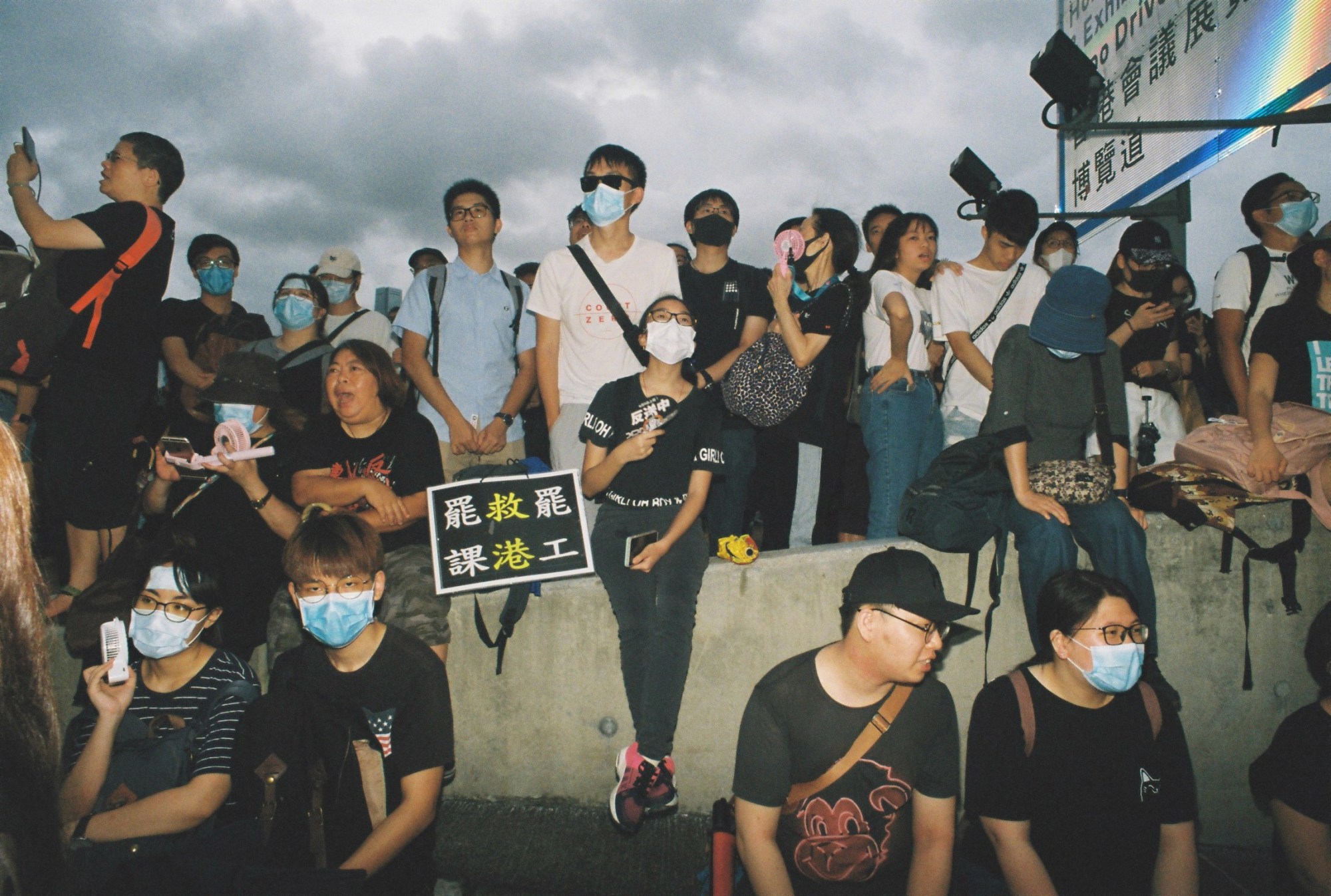
In Hong Kong at the moment, two million regular citizens are protesting on the streets to defend their freedom. But what kind of freedom is it that they’re seeking? And what kind of protest is appropriate for that kind of aim?
Freedom is a broad word, and there are several different concepts tangled up in it. Let’s break it down for the moment into three different kinds: political freedom, everyday freedom, and freedom of living.
Political freedom is freedom from the system. It includes freedom of thought and belief. This kind of freedom is tied up with the continued existence of the state, so there are many legal restrictions here. Even in democratic nations, there is absolutely no tolerance for anti-democracy movements, and those forces that work to overcome the democratic system are eliminated. In other words, whatever the system, it’s no small feat to overthrow it.
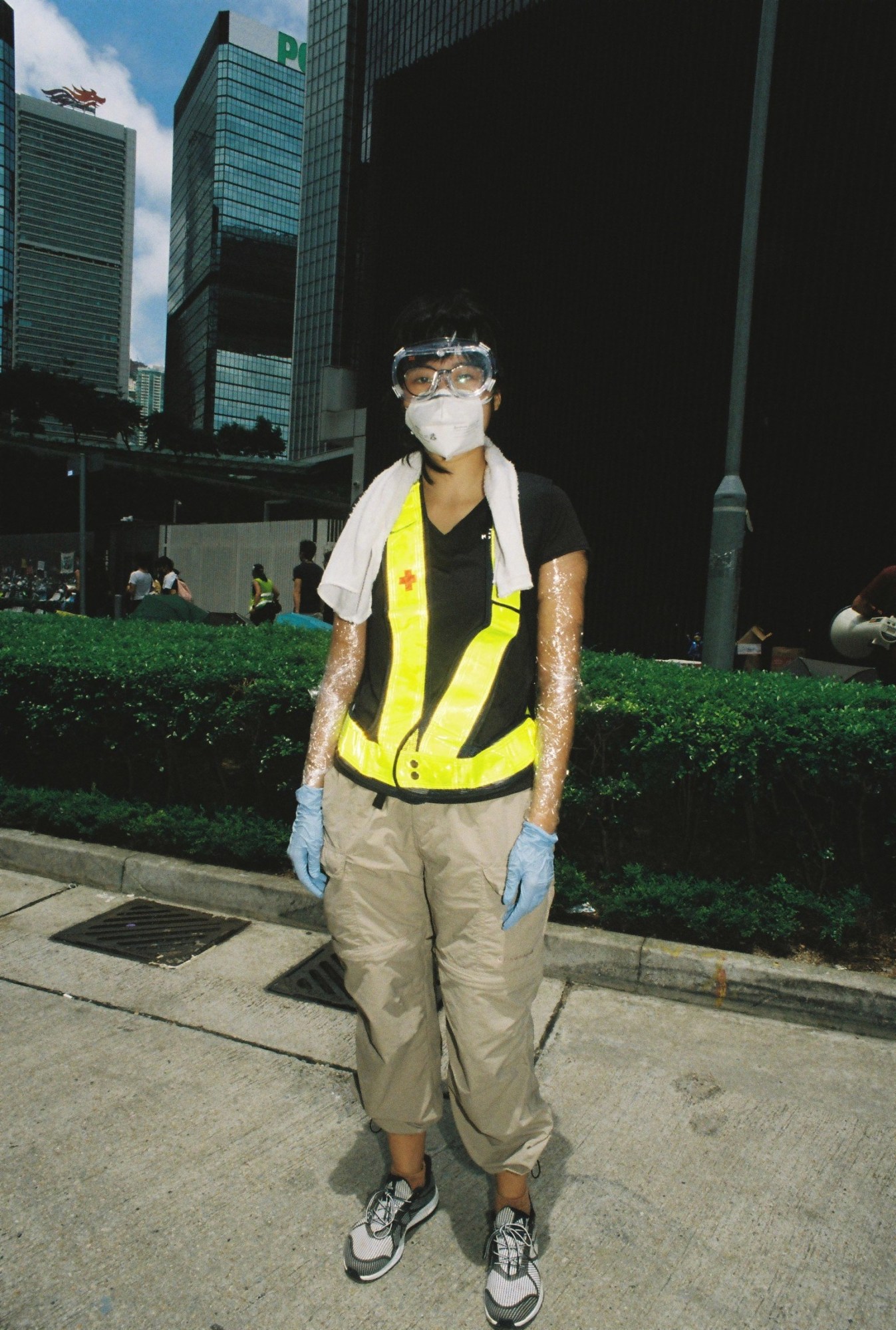
Everyday freedom is freedom as it affects the ordinary places where numerous people go about their lives. The freedom of multiple individuals inevitably causes clashes and collisions. This gives rise to adjustments to those freedoms through laws, practices, agreements, and so on. And yet, when those grow too prevalent, people’s lives grow overly restricted—in other words, unfree.
Freedom of living is the freedom to decide how one lives. This is the freedom that stands at the very core at each of our lives. It’s about the wish to be unconstrained by others and by the state, and the freedom to be that way.
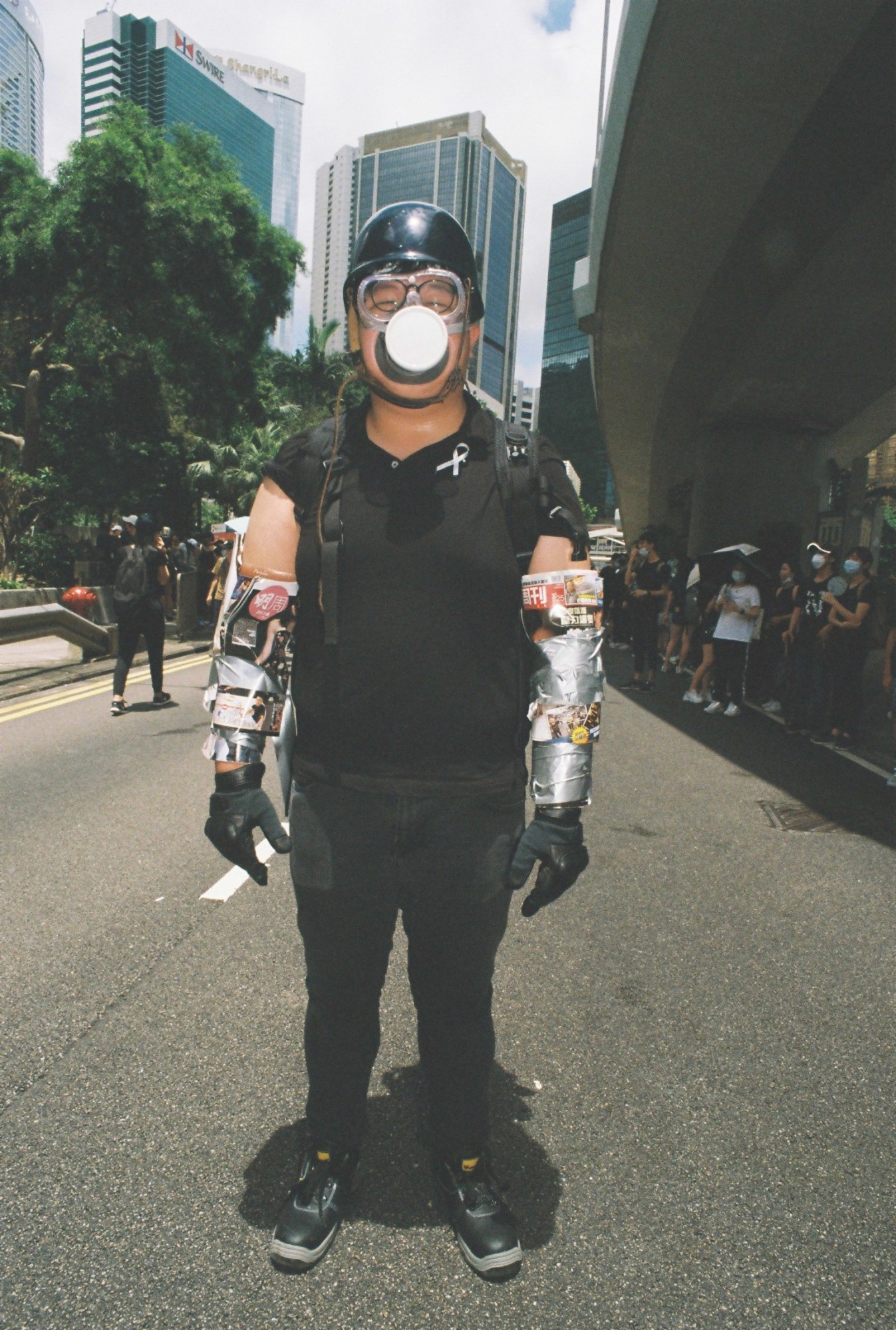
The reason that all three kinds are spoken about in one breath is that multiple kinds of freedom can be associated with a single event. For example, movement between nations is tied up with all three kinds of freedom equally. You need the approval of both countries in order for it to happen. It causes friction between the cultures and habits of the countries involved. And movement is a choice within our lives.
None of those participating in the protests in Hong Kong are seeking a system change. Yet the Chinese Communist Party isn’t satisfied by that. The origins of communism lie in philosophy, and the question of how people should live in order to bring about a better world, an ideal world. For that reason politics tends to intervene in people’s everyday freedom, and freedom of living.
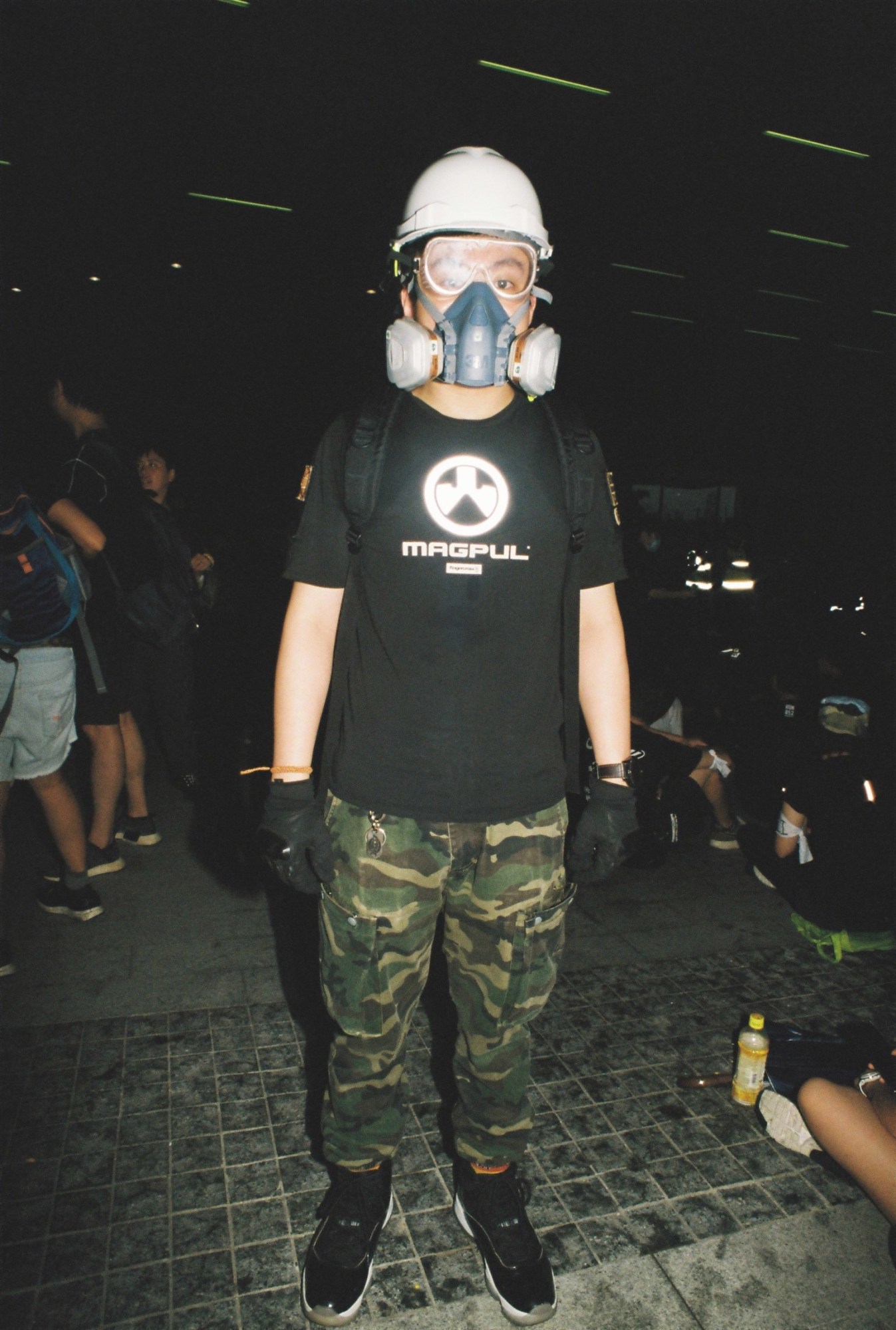
That is what the Hong Kong citizens are rebelling against. To reiterate, they are not seeking to overthrow the system. Should their lives be determined by the state, or should they decide them for themselves? The people of Hong Kong wish to decide for themselves. To put it broadly, they are looking for freedom.
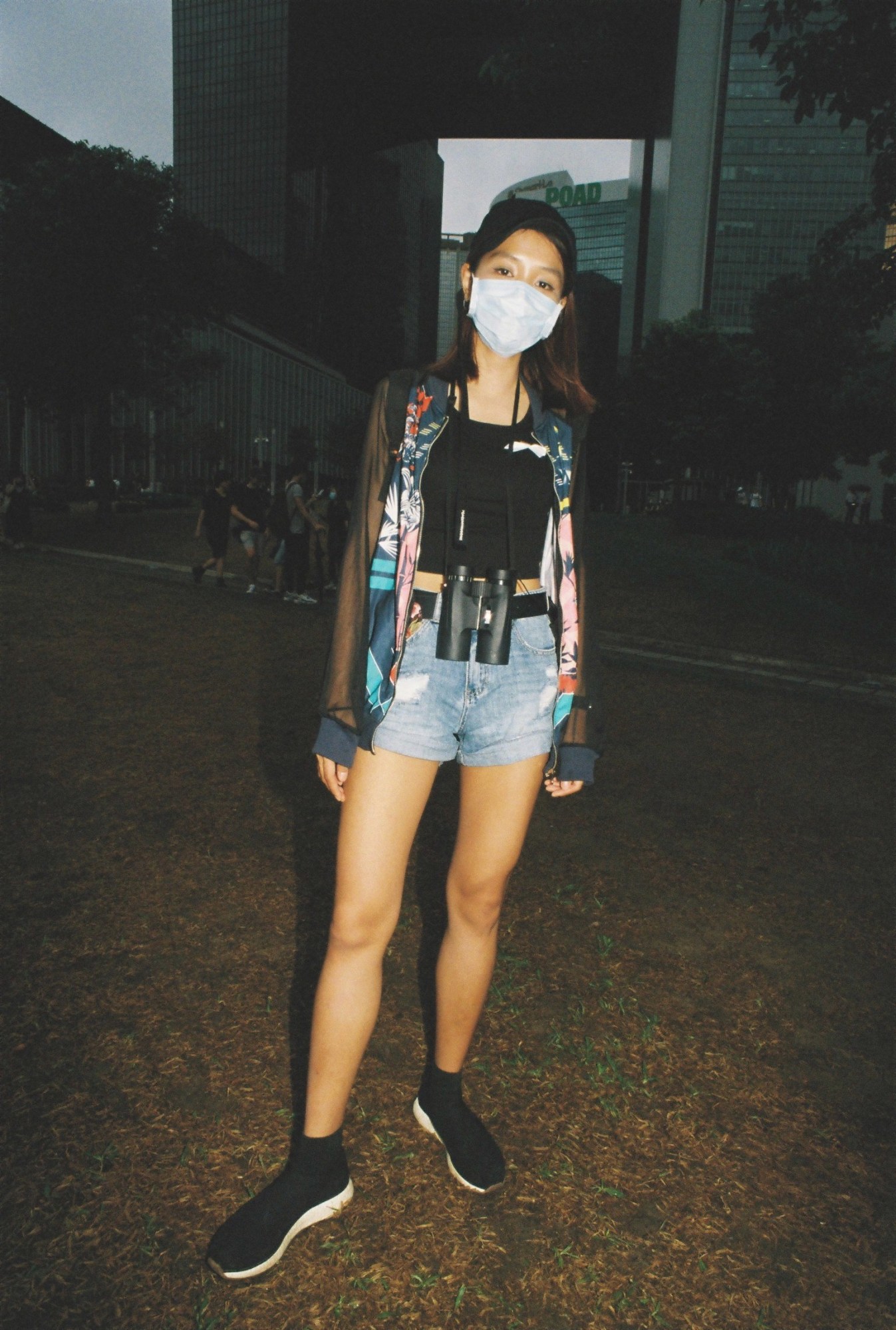
Those on the side of the system are waiting for the protests to descend into the chaos of violence and destruction. Then they can be justified in invoking state power, in the interest of maintaining the system. Yet the people of Hong Kong lack the means of violence. At the very least, for the past three months that these protests have been going on, they carry with them only what they need to protect themselves. It’s neither system overthrow nor destruction that the people want, but freedom.
In movements seeking everyday freedom, or freedom of living, it’s important to express that desire clearly — just like the people introduced in these photos. – Eric
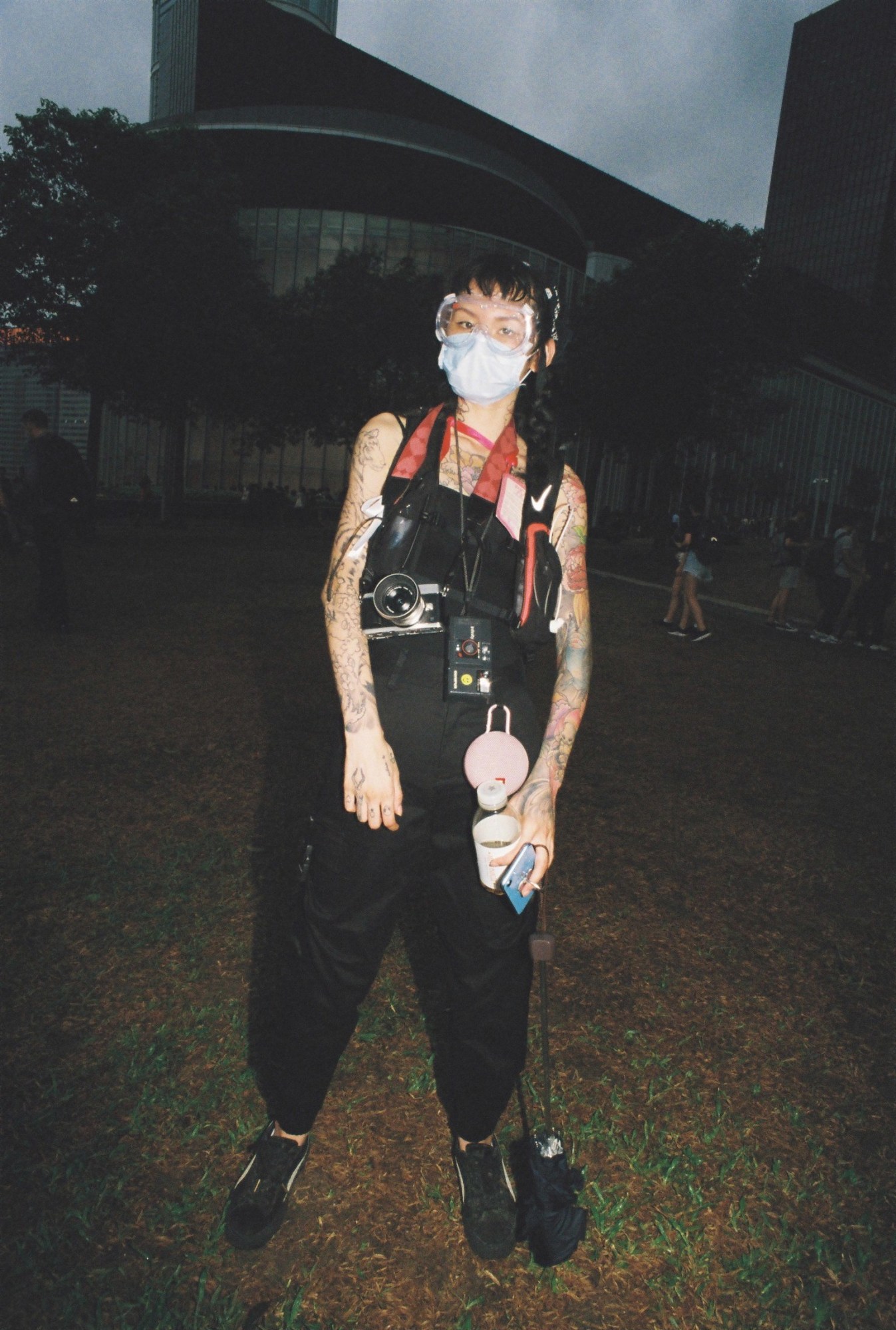
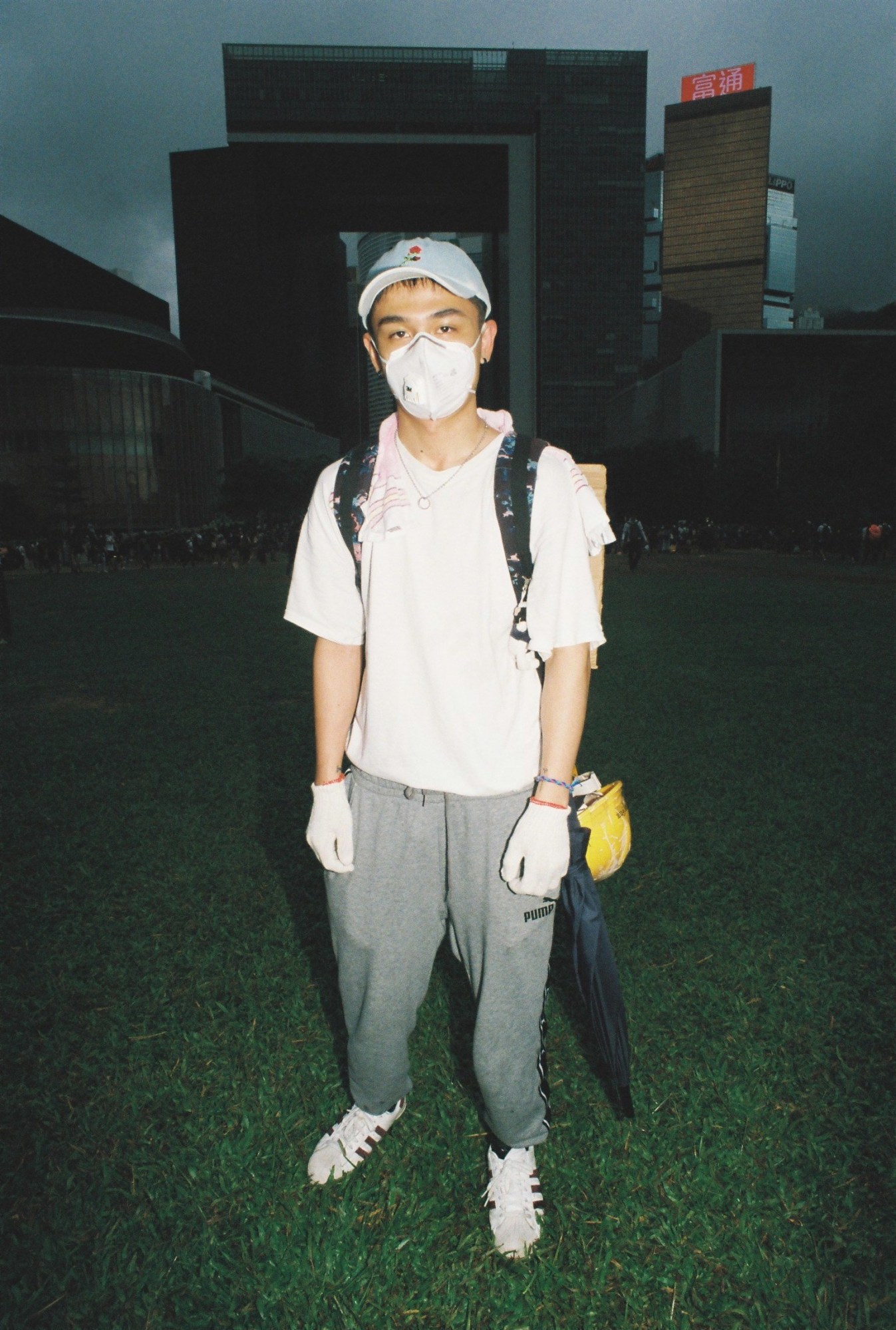
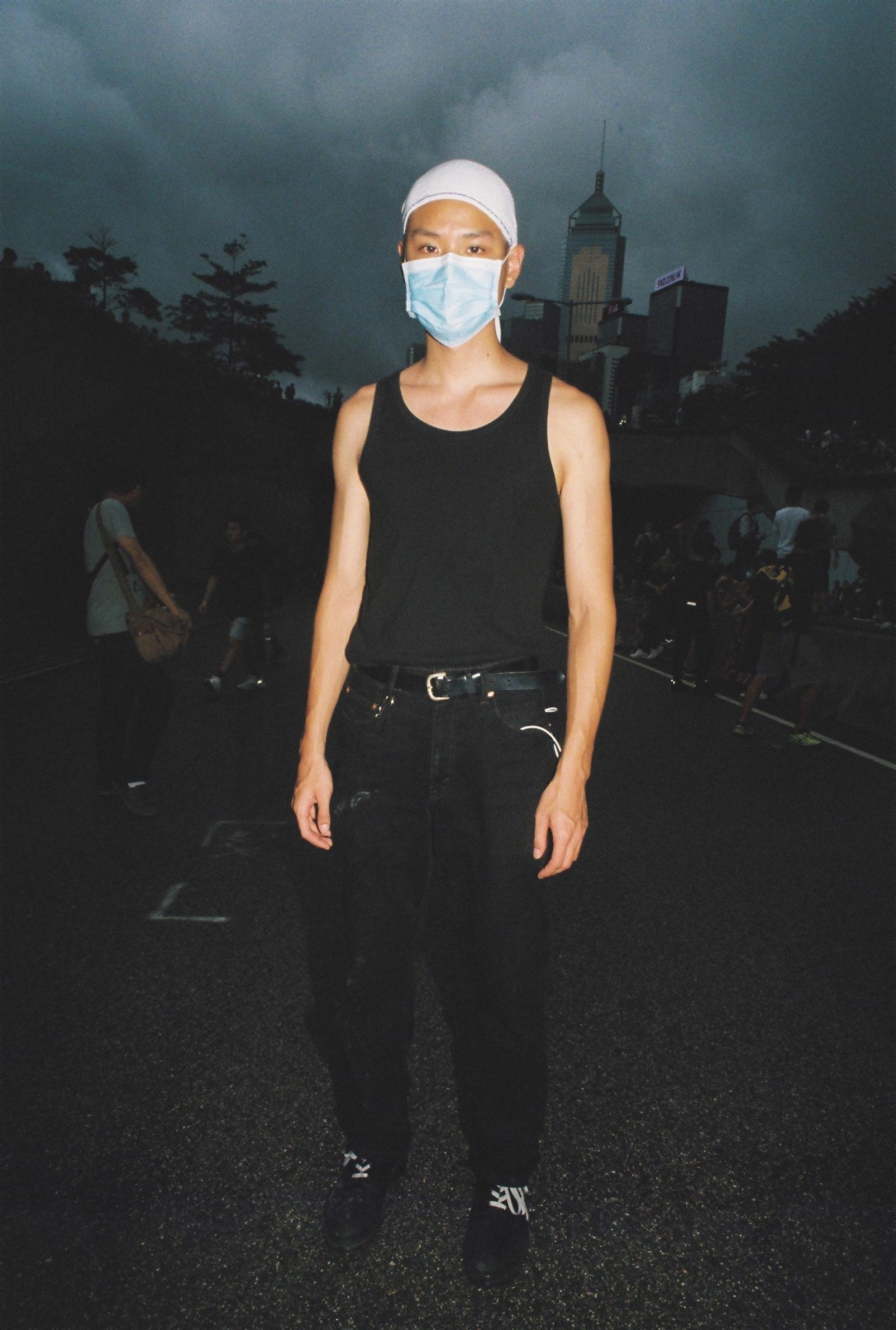
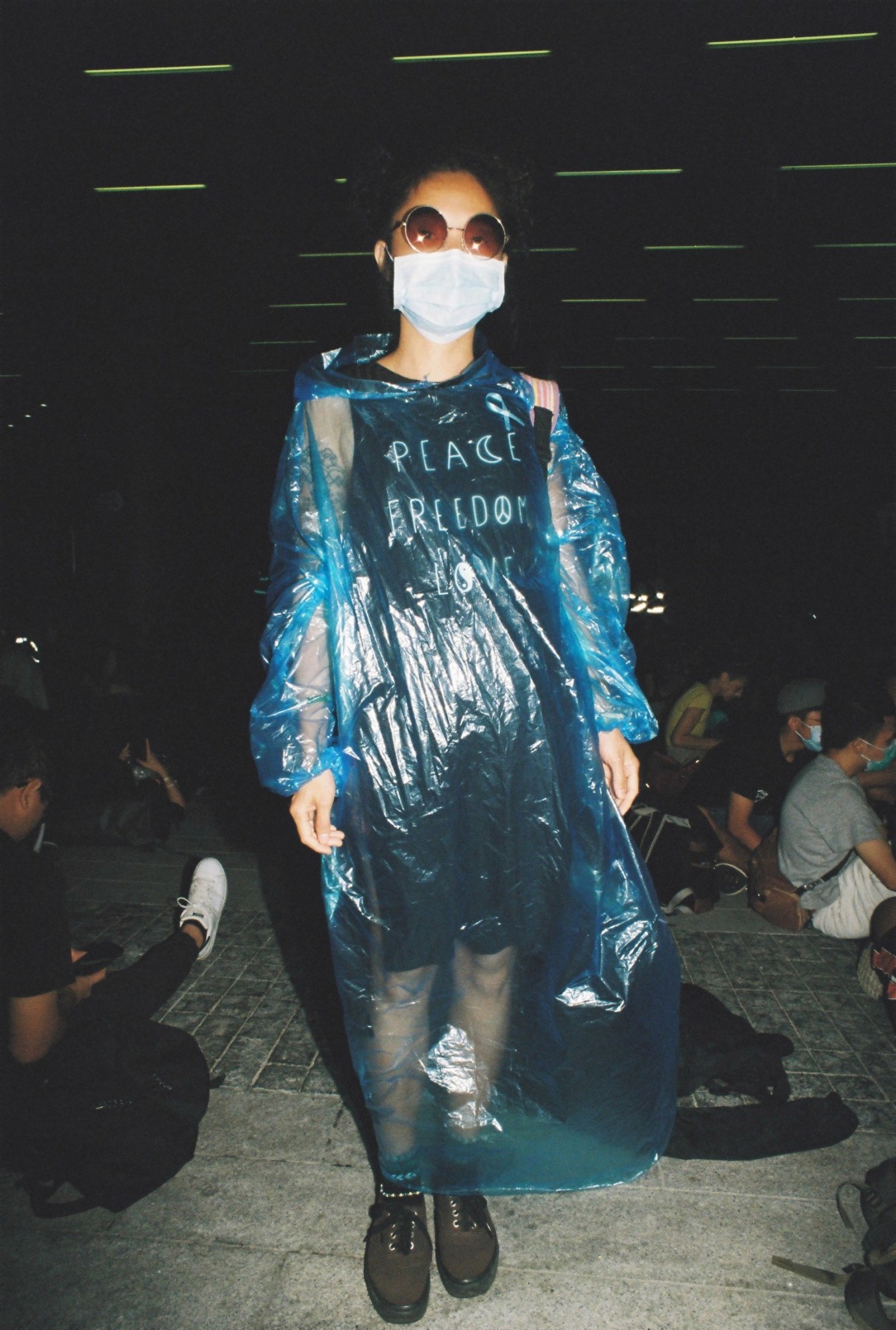
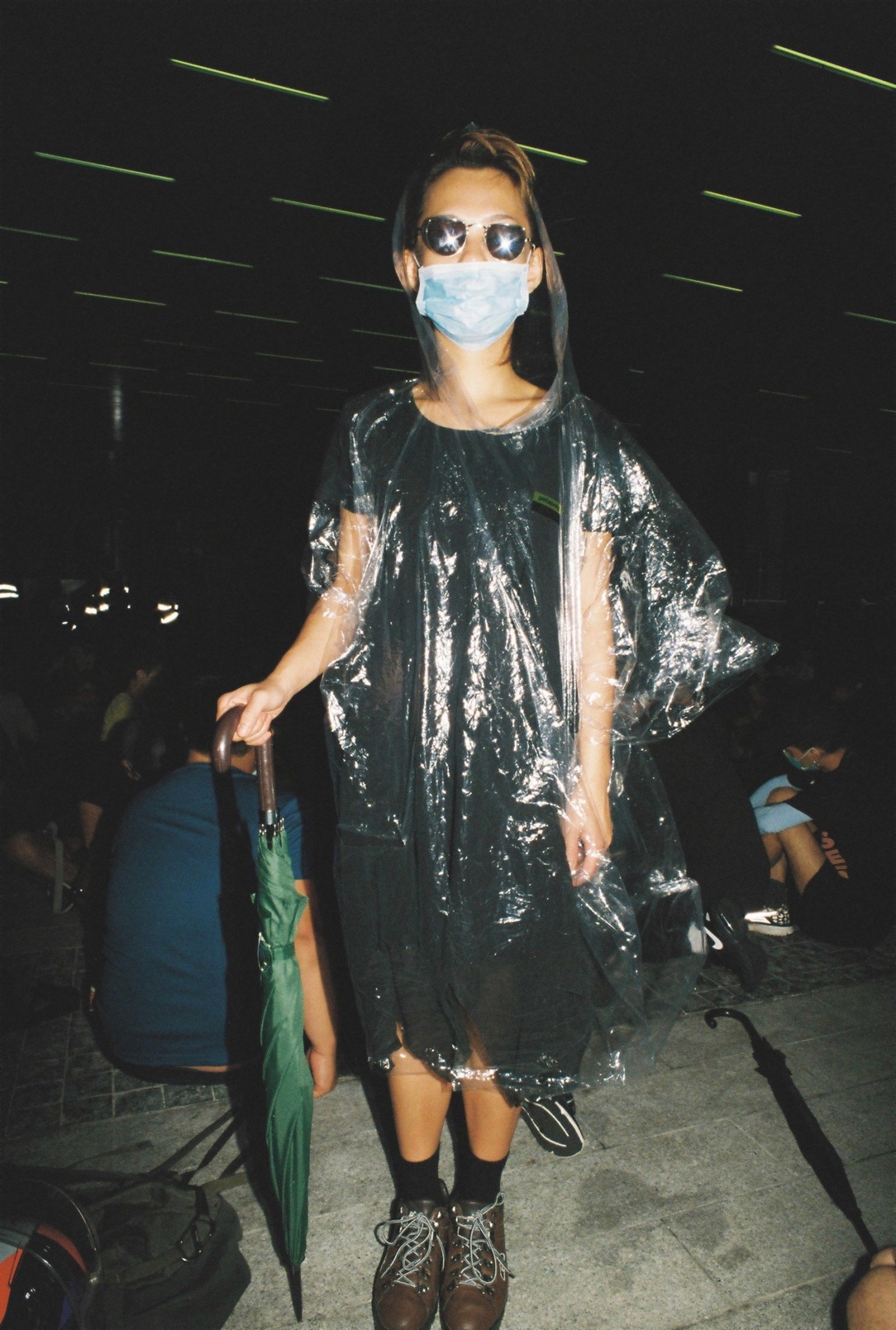
This article originally appeared on i-D Japan.
